We have seen a Russian man, struck by a speedboat propellor, struggling to be understood in a crowded ward. We have seen motorcycle victims galore and a lonely Rohingya woman, anxious before childbirth and delighted later, cradling her baby.
We have seen drowned children. We have helped to lift a barely conscious Aussie who fell 18 floors and survived, being prepared for a life-saving operation. The nurses needed help.
Today and every day, the nurses and the doctors need every bit of help they can get.
If there's a place that truly represents the soul and heart of Phuket, it is Vachira Phuket Hospital, the island's largest and busiest public hospital. No other place comes close.
I first went to Vachira Phuket on the day in 2004 that the tsunami struck Phuket. A Canadian tourist sitting outside Emergency escaped with cuts when the wave picked him up as he was scuba diving off Kata beach.
That night, an Australian told how, on the first day of a holiday, he and his wife had been swept off their feet by a wall of water in Patong. He escaped uninjured but his wife was seriously hurt and inside the hospital, being treated.
SOME VISITORS are shocked by the Phuket hospital's outdoor morgue or the overcrowded wards, by the queues and the constant hubub.
A Phuket Prison inmate shuffles past, his ankles in shackles and his arms holding up a heavy chain, a warder behind him. Vachira Phuket is full of surprises.
This week there was a rare pleasant surprise: a cheque for 100,000 baht from the German Help Organisation in Thailand, handed over by Germany's Honorary Consul in Chiang Mai, Hagen Dirksen.
As Mr Dirksen made clear in his brief speech, it was just a small token in recognition of the hospital's generosity in treating all expats, including Germans, whether or not they have the capacity to pay.
With Mr Dirksen was Phuket's own German honorary consul, Dirk Naumann.
Both honorary consuls would like to see all expats better insured, whether visiting Phuket and Thailand as tourists or coming to live.
The hospital's director, Dr Jessada Jongpaiboonwattana, made the point that of the 30 million baht spent caring for expats at Vachira Phuket last year, three million baht was unpaid.
He said this was ''no big deal.'' The hospital will always treat those who need care, regardless.
But a stroll around the hospital makes it plain that every baht counts and that every baht is put to good use.
Expats who come to live on Phuket should bear in mind that they will age and at some point they will need health insurance, the doctor said.
As for tourists, he said: ''Insurance is not expensive but it can cause hardship for some if they have an accident without it.''
Road crashes, drownings and somewhat surprisingly, giving up alcohol are the three main causes that put expats into Vachira Phuket.
As the hospital that treats more motorcycle-related injuries than any other on Phuket, Dr Jessada's views on riding without a helmet or without knowing how to ride a bike properly are predictable.
Often caught up in the mayhem of holiday disasters is the hospital's international matron, Methavee Maneesri, who does her best to make sure expats get the treatment they need and go home safely.
Les Boardman, the Australian whose wife Dianne was treated at Vachira Phuket during the tsunami, came back a few months later to donate $89,000 that he had raised.
If only there were more grateful visitors and residents who anticipated a time when they might need a hospital on Phuket and took out insurance as a precaution.
Meanwhile, Vachira Phuket will continue to do its absolute best, regardless.

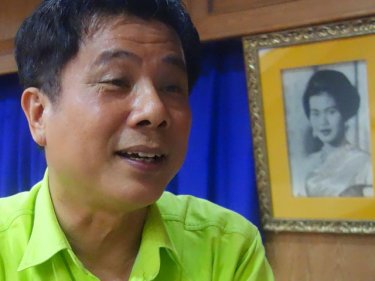







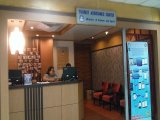
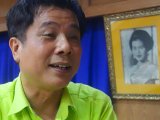
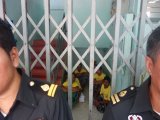
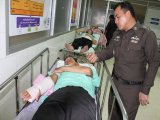
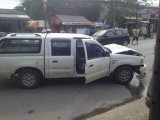

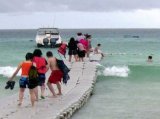
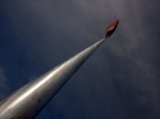




A very important story. Vachira seems always on the point of busting, but always is there intact. I know several Thais taken there all busted up, cared for by the good people there and the friends who lived-in with them, now not at all busted up. We should hope that the authorities are making the hospitals in Patong and Thalang and the new public one nearly as good!
Posted by ssresident on July 28, 2013 17:47